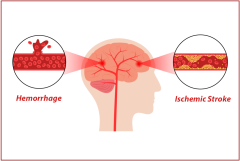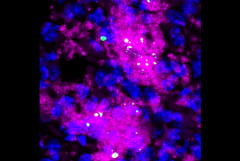Blood clots form in response to signals from the lungs of cancer patients—not from other organ sites, as previously thought—according to a preclinical study by Weill Cornell Medicine, Memorial Sloan Kettering Cancer Center and University of California San Diego Health. Clots are the second-leading cause of death among cancer patients with advanced disease or aggressive tumors.
While blood clots usually form to stop a wound from bleeding, cancer patients can form clots without injury, plugging up vessels and cutting off circulation to organs. The study, published Feb. 11 in Cell, shows that tumors drive clot formation (thrombosis) by releasing chemokines, secreted proteins which then circulate to the lung. Once there, the chemokines prompt immune cells called macrophages to release small vesicles that attach to cell fragments (platelets), forming life-threatening clots.

Dr. David Lyden









